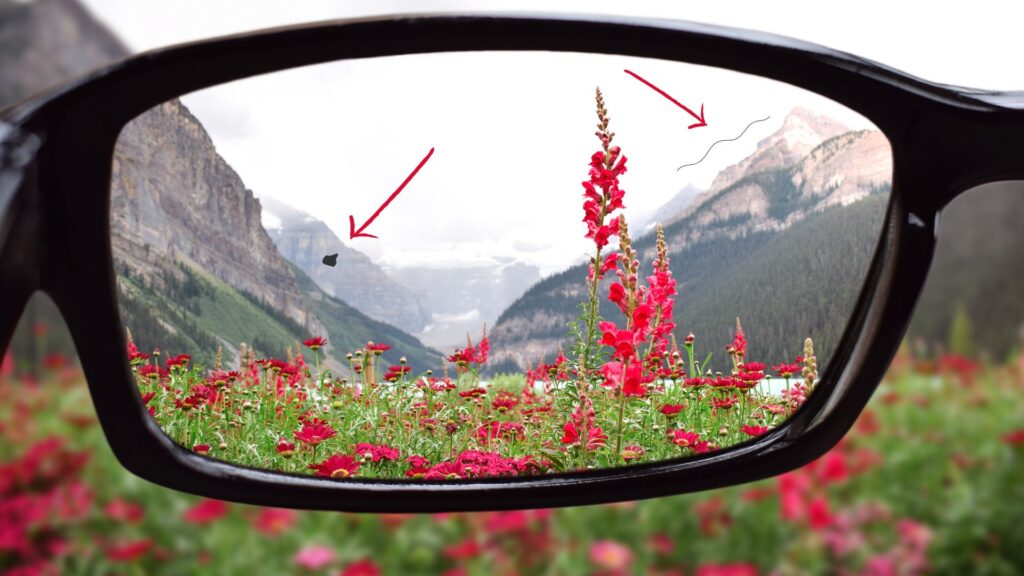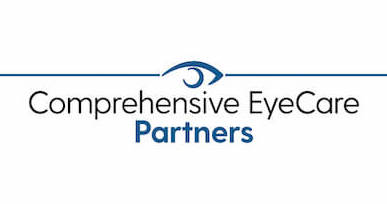In This Issue: September 2023
- How Your Eyes Change Over Time
- Common Medications & Glaucoma
- Spot the Floater

How Your Eyes Change Over Time
Your eyes will continually change throughout your lifetime. September is Healthy Aging Month so it’s a great time to learn about the symptoms of vision conditions that commonly affect people at different ages in their lives. Check your age category below and think about your own eyesight.
In your 20s-30s
- Many people have great eyesight without the need for glasses. However, if you do wear glasses/contacts to correct nearsightedness, farsightedness or astigmatism, you may notice that your lenses aren’t quite giving you the clear vision you once had. Your prescription may need to be updated, so schedule eye exams every 2 years to have your vision checked.
- LASIK vision correction can be a great option at this time in your life to help you see clearly without lenses.
- If you spend a lot of time on digital devices, you may also experience digital eye strain (dry eye, blurry vision, headaches, etc.). Try reducing your screen time, wearing blue light filtering glasses or taking breaks every 20 minutes to rest your eyes.
In your 40s-50s
- Even if you’ve never worn glasses in the past, most people experience presbyopia after age 40. This occurs when your eye lenses begin to harden and lose flexibility, making it difficult to read up-close. Reading glasses can help.
- If that doesn’t sound appealing, there are permanent surgery options that can correct presbyopia by removing your eye lens and replacing it with a new lens that provides clear vision at all distances (clear lens exchange).
- Dry eye is another condition that often pops up during this time. Women are especially susceptible due to hormone level fluctuations during menopause.
- Glaucoma is a silent eye disease that has no symptoms in the early stages. Caused by a build-up of fluid in the eyes, this disease can cause permanent vision loss. Regular eye exams are very important to diagnose glaucoma in the early stages!
In your 60s and older
- Cloudy, dull-colored or yellowed vision are symptoms of cataracts. Most people get cataracts eventually. They are the result of protein build-up on your eye lenses. Cataract surgery is very effective to restore clear vision by removing the cloudy lens and replacing it with a crystal clear one.
- Central vision loss, floating spots and flashes of light could signify a serious condition called age-related macular degeneration (AMD) or another retinal problem. If you have any changes in your eyesight, don’t wait to schedule an eye exam!
Contact us at (702) 996-5159 to schedule an eye exam, or click below to contact us.

Common Medications & Glaucoma
There are many types of medications that can increase eye pressure. If you have glaucoma, it’s important to talk to your eye doctor to make sure the ones you use are safe for your type of glaucoma. For example, steroids (corticosteroids to treat inflammation and swelling) are not recommended for people who have open-angle glaucoma (the most common type). Narrow-angle/angle-closure glaucoma patients should be cautious when taking medications such as Botox, NyQuil, Ditropan, Benadryl, Claritin, Zyrtec, Prozac, Paxil, Topamax and many more. For a more comprehensive list, visit the American Academy of Ophthalmology website by clicking here.

Spot the Floater
Little black specks. Squiggly lines. When you first notice a floater, you may think that you just saw something out of the corner of your eye crawl on the wall or across the floor. But they often disappear as quickly as they show up. You probably didn’t imagine it: it’s most likely a tiny strand of vitreous gel from inside your eyes. These floaters cast shadows on the back of your eye and appear like temporary specks, lines or cobwebs in your vision. If you’ve spotted a floater in your vision, contact us to schedule an eye exam. They typically aren’t cause for alarm, but we can determine if they are a symptom of a more serious condition such as a retinal tear or detachment, an eye disease, inflammation, infection, etc. Contact us by calling (702) 996-5159 or clicking below.


